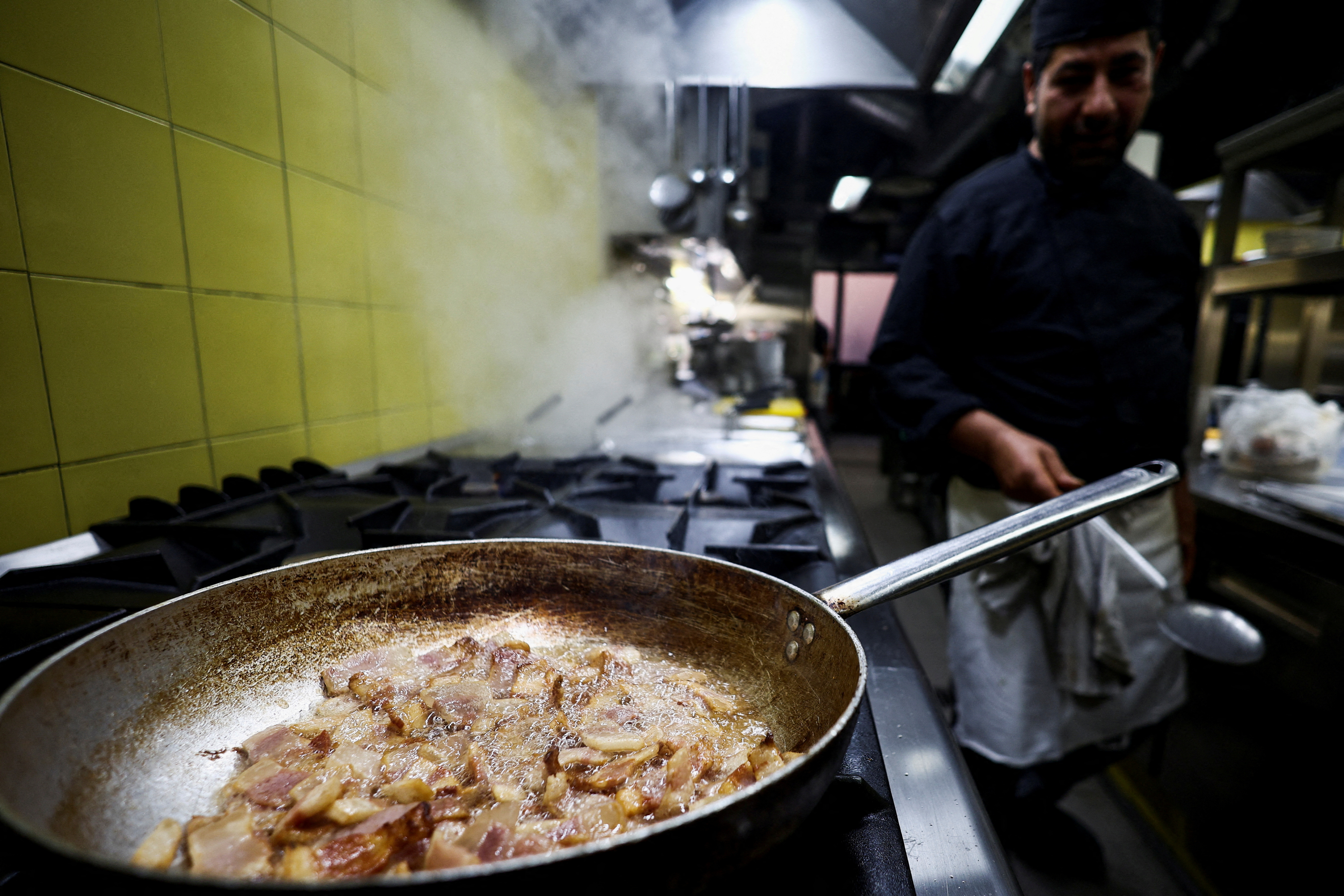Food is a serious business in Italy, part of the national identity, as illustrated by a row that has broken out over how to make carbonara pasta sauce.
Luca Cesari, a food historian and author from Bologna, faced a stream of online abuse after he posted a video on Instagram in which he presented what he said was the original version of carbonara, considered a classic of Roman cooking.
Ditching the usual ingredients of Italian pecorino cheese and cured pork cheek to be mixed with eggs to create a creamy sauce, the carbonara presented by Cesari was made with Swiss gruyere cheese, garlic, bacon and scrambled eggs.
Cesari said he had gone back to the original recipe published in an Italian cookery magazine almost 70 years ago and was trying to show how the recipe evolved over the decades.
“I simply remade the 1954 carbonara, the first one featured in the ‘Cucina Italiana’ magazine. It’s not my fault if that was the carbonara recipe!”, he told Reuters.
“Over the years, a series of different recipes for carbonara have emerged, including those with raw ham in the fifties. In the U.S.A. you could even find versions with clams or mushrooms.”
Alberto Grandi, another food historian who has come under fire for questioning established Italian culinary traditions, leapt to Cesari’s defence.
In his own Instagram video, he denounced to a sort of “gastronationalism that prevents us from reasoning calmly about the themes of our cuisine.”
Other examples of what Italians consider food heresy are pairing pasta with ketchup sauce, or adding pineapple to pizza, together with a de facto ban on ordering cappuccino after lunch.
Cesari remains unbowed and is ready to whip up more culinary controversy.
“That was only the first video… I’m preparing a new one on the traditional Neapolitan pizza from the 1800s with clams!”.







Click here to change your cookie preferences